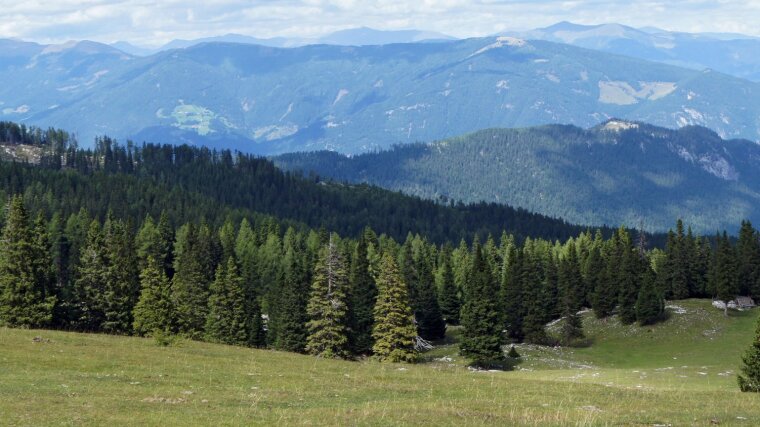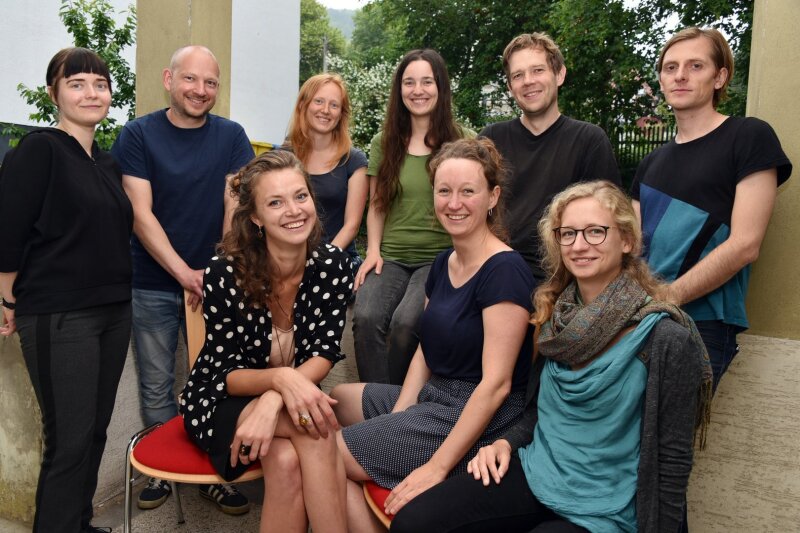
It is well known today that fossil fuels such as oil, coal and gas will soon become obsolete as energy sources and raw materials for industrial production: Their available stocks are limited and the greenhouse gases that are emitted when burning fossil fuels contribute to global warming and catastrophic climate change. One response to this problem is the search for biological and renewable resources that could serve as drivers of an emerging bioeconomy and make many of the so far fossil-based applications and products much more sustainable in the future.
The junior research group "Mentalities in flux" (flumen), funded by the German Ministry of Education and Research (BMBF), is affiliated to the Institute of Sociology at the University of Jena. Combining sociological and historical research, we examine how people’s basic mindsets, attitudes and common imaginations change in the course of a resource and energy transformation away from fossil fuels towards biological resources. We assume that bio-based economies reflect the cyclical, circular flows of matter that characterize living organisms and demand a different understanding of time and future as well as a different self- and world-relation, in short: different mentalities than those characteristic of economies based on a linear flow of resources and the extraction of fossil fuels.
Gruppenfoto Flumen
Image: Anne Günther (University of Jena)Theoretical Background
Societies and their Energy Sources
There are fundamental differences between fossil resources on the one hand and biological raw materials and renewable energies on the other – differences that can be assumed to have a far-reaching influence on human-nature relations. Economies that are based on biological rather than on fossil resources provide new and different options for individual and collective action, reorganize the distribution of labour in society and shape the way we think about ourselves and our relation to nature. Fossil fuels are extracted from enormous underground reservoirs and the exploitation of coal, oil and gas steadily extended and accelerated throughout the last two centuries. As a result, the permanent and ubiquitous availability of fossil energy and fossil-based products came to impose itself as a seemingly self-evident fact on many people’s minds. In contrast, biological resources regenerate at a limited speed and with varying yields, also they depend on natural conditions such as geographical latitude, soil quality and weather. Although biological growth processes may be technologically accelerated and optimized to some extent, there are inherent biophysical limits to this, meaning that in a bioeconomy, the availability of energy and goods cannot be expected to increase in a comparable way in the long run.
Historical Reference
Historical research shows that the constant increases in the availability of fossil energy in modern times has been accompanied by the emergence of collective imaginaries and practically anchored basic attitudes (mentalities) that were themselves geared to permanent "progress" and a steadily rising standard of living. We therefore assume that the conversion of hitherto fossil-fuelled linear throughput economies to bio-based economies based on circular flows will amount to a similarly comprehensive social-ecological transformation. This includes a far-reaching restructuring of the material infrastructures of the economy (energy networks, production facilities, transport systems) as well as changes in the "mental infrastructures" (Harald Welzer): the ideas and expectations with regard to one's own life, society and the future that are anchored in the minds of the population.
Bioeconomy and Acq
uisition Structure
The bioeconomy will also lead to fundamental shifts in the division of labour within society. Different demands for labour power in the bio-based sectors will directly change the structure of the economy, while there will also be indirect effects from changes in people's ideas, expectations and needs – for example, lower needs for commercial products and services might be accompanied by a higher appreciation of care activities, reproductive and subsistence work. In our junior research group we study these changes in the occupational structure and employment statuses of the population. We ask what alternative orientations may succeed the logic of constant growth that has characterised fossil economies, how these orientations will shape modern societies based on biological resources and their cyclical reproduction, and what this will imply for mentalities and the social division of labour.
Method
We address these questions using a variety of research methods. Case studies in different European countries shed light on the effects of bio-economic change in places or regions where bio-based economic activities already play an important role in everyday life. In addition, statistical data on the structure and shifts of employment in the research regions are tapped and analyzed. Also, as a contrasting comparison to the impending structural transformations, we engage in historical research analyzing earlier mental transformations accompanying the ascent of fossil-based economic activity in the 19th and 20th centuries. Furthermore, we will carry out a representative survey on attitudes towards bioeconomic structural change, to investigate how social groups are affected by the ongoing changes at the biophysical basis of economic activity.
As these questions are of great importance for the future of society, we regularly address the interested public with our work, e.g. by presenting our research in lectures, discussion events, workshops with stakeholder groups, and reports accessible to the general public.
